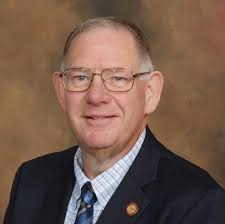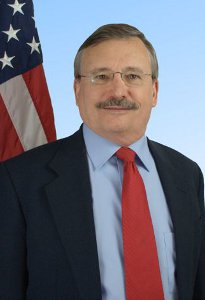(Updated to include comments from Rep. Carmichael, attorney general, Kansas Chamber of Commerce and Senate minority leader)
Gov. Laura Kelly on Friday vetoed a bill providing potentially hundreds of millions of dollars in compensation to small businesses that were hurt financially during the COVID-19 pandemic.
The bill directed a portion of uncommitted federal COVID-19 relief money coming to the state – as well as cities and counties – for settling claims for government-ordered shutdowns or restrictions during the pandemic.
The amount could have been substantial since it required the state to set aside 25% of its uncommitted federal COVID-19 relief money.
Cities and counties that put restrictions in place during the pandemic would have had to earmark 35% of their federal relief money for compensation.
State and local governments are expected to bring in about $2 billion in federal COVID-19 relief money, meaning the bill could have been worth about $500 million if it was all unencumbered.
The governor said the bill was well-intentioned, but it violated federal rules for using the latest round of COVID-19 relief money approved by Congress.
Guidance issued by the Treasury Department last week said that a state may not place additional conditions on how local government could spend the relief money.

The Kansas Association of Counties believed the bill passed by the Legislature – and that Kelly vetoed – conflicted with federal law.
Kelly also said the bill didn’t comply with federal rules that prohibit using the relief funds to resolve potential legal claims against state or local governments.
“The COVID-19 pandemic has presented many challenges for Kansas businesses over the last year, and my administration has been committed to doing all we can to support their continued pandemic recovery efforts,” Kelly said in statement.
Kelly said she is committed to working to develop relief programs that “comply with federal requirements to ensure that our economy emerges from this pandemic stronger and more agile than ever.”
The governor said the better process for helping businesses was through the so-called SPARK task force – short for Strengthening People and Revitalizing Kansas – that will now be led mostly by lawmakers or their representatives.
“All recovery initiatives should go through the transparent, federally compliant, bipartisan, and efficient process we have already established through the SPARK Taskforce,” the governor said.
The bill passed in the House on a 68-42 vote and 24-14 in the Senate, both short of the two-thirds majorities required to override the veto.
House Majority Leader Dan Hawkins ripped into the governor for vetoing the bill, comparing her administration to an icon from “Star Wars.”

“This is a governor that ordered nonsensical business closures, has enabled massive unemployment fraud, put prisoners at the front of the line for the COVID-19 vaccine, vetoed needed tax reform, and is now paying workers to stay home instead of rejoining the labor market,” Hawkins said in a statement.
“Today is just further evidence that the Kelly administration is a Death Star with the sole purpose of destroying the Kansas economy.”
Democratic state Rep. John Carmichael of Wichita was one of the harshest critics of the bill, leading an effort to defeat the legislation in the House.
“Municipalities and counties are given these federal funds because they’re closest to the needs,” Carmichael said.
“This bill was designed to usurp county commissioners’ judgment about what would be best for their counties and instead, once again, move the Chamber of Commerce’s friends to the head of the line,” he said.
Alan Cobb, president and CEO of the Kansas Chamber of Commerce, criticized the veto.

“Her action deprives thousands of Kansas small businesses of compensation for the sacrifices they made on behalf of the good of the general public, making it more difficult for these businesses to move forward and help heal the Kansas economy,” Cobb said.
The bill was intended to settle a lawsuit over whether the state should cover business losses suffered because of the shutdown.
The owner of Sedgwick County gym went to court last year, arguing that he’s entitled to compensation under state law because the government assumed use of the property as it undertook efforts to contain the virus.
The lawsuit contends the gym owner is entitled to compensation under the state’s emergency management law, which provides compensation for the taking or use of property if it is “commandeered or otherwise used in coping with a disaster.”
Lawyers for the gym believed if they’re successful in court, it could open the door to many similar claims from across the state and pile up legal judgments against Kansas.
Omega Bootcamps and its owner, Ryan Floyd, reached an agreement with the state to delay the case so legislative changes could be considered that would allow for a consistent statewide process for considering these types of compensation claims.
Attorney General Derek Schmidt had said that he generally agreed that a case could be made for someone seeking compensation whose property was “significantly damaged” by government actions undertaken for the public welfare during a state of emergency.
The agreement to delay the case, Schmidt said, was an attempt to give the Legislature a chance to consider the public policy implications of compensation during an economic shutdown.
An agreement to delay the case dissolves next Wednesday when the legislative session officially comes to an end.
“We’re just back to where we were before the legislative session,” said Ryan Kriegshauser, one of the lawyers representing the gym.
“By vetoing (the bill) there is no question that is the path that the policymakers want claimants to take – to go to court,” he said.
“The stay was in place to give legislative policymakers an option to fix this for everyone,” he said. “They did exactly that, and she vetoed it.
“We’re back to where we started.”
Schmidt, who is running for governor next year, thanked the plaintiffs for agreeing to put their lawsuit on hold. He wished Kelly had signed the bill.
“Without a compensation law, we will have no choice but to return to court where judges, rather than elected policymakers, will decide case-by-case whether and how to compensate businesses harmed by government-ordered shutdowns and limitations during the pandemic,” Schmidt said in a statement.

Carmichael, meanwhile, suggested that the case is driven by financial interests.
“There’s been an attempt made by certain lawyers who represent business interests and that are closely associated with the Chamber of Commerce to turn COVID relief into a cottage industry for their personal benefit,” he said.
“They have great hopes that they will be able to raid the public purse for COVID compensation of some kind through the legal system,” he said.
The proposed structure for awarding the money to businesses came under criticisim for its closed nature.
A three-person board – appointed by the governor, the House speaker and the Senate president – would haved played a pivotal role in how the money was doled out.
The board would not have been subject to the state open meetings and open records law, largely because of the sensitive nature of the private information that businesses would have been required to submit to the board for review.
However, the bill required the joint legislative Committee on Special Claims Against the State to meet and review the claims that were accepted.

The Legislative Coordinating Council, made up of legislative leadership, would have had the power to authorize and approve the claims requested by the businesses.
“This poorly-vetted, last-minute bill gives immense authority over millions of dollars to three unelected people hand-picked by legislative leadership,” said Senate Minority Leader Dinah Sykes.
Democrats raised questions about whether lawmakers had sufficient time to thoroughly review the bill, whether the process for deciding the compensation was opaque and what happens if the federal COVID-19 money could not be used for the compensation.
They raised several questions, including who would benefit from the program and whether it was appropriate to lock up the funds of local government and the lack of detail about how much the bill would ultimately cost.













